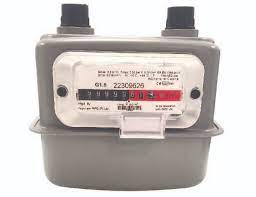In our modern world, the reliable measurement of natural gas consumption is crucial for various sectors, including residential, commercial, and industrial. Diaphragm gas meters have emerged as a key technology in accurately monitoring and billing for natural gas usage. These meters play a pivotal role in ensuring fair pricing, resource conservation, and efficient energy management. In this article, we will delve into the world of diaphragm gas meters, exploring their working principles, benefits, applications, and the importance of their ongoing development.
Understanding Diaphragm Gas Meters
Diaphragm gas meters are mechanical devices designed to measure the volume of natural gas passing through them. The key components of a diaphragm gas meter include a housing, inlet and outlet pipes, diaphragms, valves, and a counting mechanism.
- Working Principle
The functioning of diaphragm gas meters is based on the displacement of gas by a flexible diaphragm within the meter’s housing. As gas flows through the inlet pipe into the meter, it encounters the diaphragm. The pressure of the gas causes the diaphragm to flex, creating a volume in the chamber.
Accuracy and Calibration
One of the primary advantages of diaphragm gas meters is their high level of accuracy. Manufacturers carefully calibrate these meters to ensure precise measurements. They are capable of measuring gas flow rates across a wide range, from small domestic consumption to large industrial usage.
Benefits of Diaphragm Gas Meters
Diaphragm gas meters offer several advantages, making them a preferred choice for gas measurement:
- Reliability: Diaphragm meters have a long track record of reliability. They can operate effectively under various conditions, including temperature fluctuations and varying gas pressures.
- Durability: These meters are built to withstand harsh environmental conditions, ensuring a long operational life.
Accuracy: Diaphragm gas meters provide highly accurate readings, minimizing billing discrepancies and disputes.
Low Maintenance: They require minimal maintenance, reducing operational costs for both service providers and consumers.
Cost-Effective: Diaphragm meters are cost-effective both in terms of initial installation and long-term operation.
Applications of Diaphragm Gas Meters
Residential: They are commonly used in homes to measure gas consumption for heating, cooking, and hot water. Accurate measurements are crucial to ensure fair billing for residential consumers.
Utilities: Gas utility companies rely on diaphragm gas meters to monitor gas distribution networks, manage supply, and bill customers accurately.
Importance of Ongoing Development
The field of gas meter technology is continuously evolving, and diaphragm gas meters are no exception. Ongoing development is essential to address emerging challenges and leverage new opportunities:
- Smart Meter Integration: Integrating diaphragm gas meters with smart metering technology enables real-time data collection and remote monitoring. This enhances energy management, reduces energy wastage, and offers customers more control over their consumption.
- Accuracy Enhancement: Research and development efforts focus on further improving the accuracy of diaphragm meters, ensuring that they meet the demands of modern energy markets.
- Environmental Considerations: As the world seeks to reduce its carbon footprint, the development of eco-friendly diaphragm gas meters with minimal environmental impact is a priority.
- Data Security: Ensuring the security of data transmitted by smart diaphragm meters is crucial to protect customer privacy and system integrity.
Conclusion
Diaphragm gas meters are indispensable tools for measuring natural gas consumption accurately in various settings. Their reliability, accuracy, and durability have made them a cornerstone of the energy industry.
Diaphragm gas meters are the heart of efficient gas measurement, providing accurate data for billing and network management across residential, commercial, and industrial sectors. Their durability, cost-effectiveness, and reliability have made them a staple in the gas industry. While newer technologies like smart meters and ultrasonic meters offer exciting advancements, diaphragm gas meters will continue to play a vital role in the gas distribution system for years to come. As the energy landscape evolves, the integration of smart technology and sustainability initiatives will shape the future of gas metering, ensuring that gas consumption remains both efficient and environmentally responsible.




